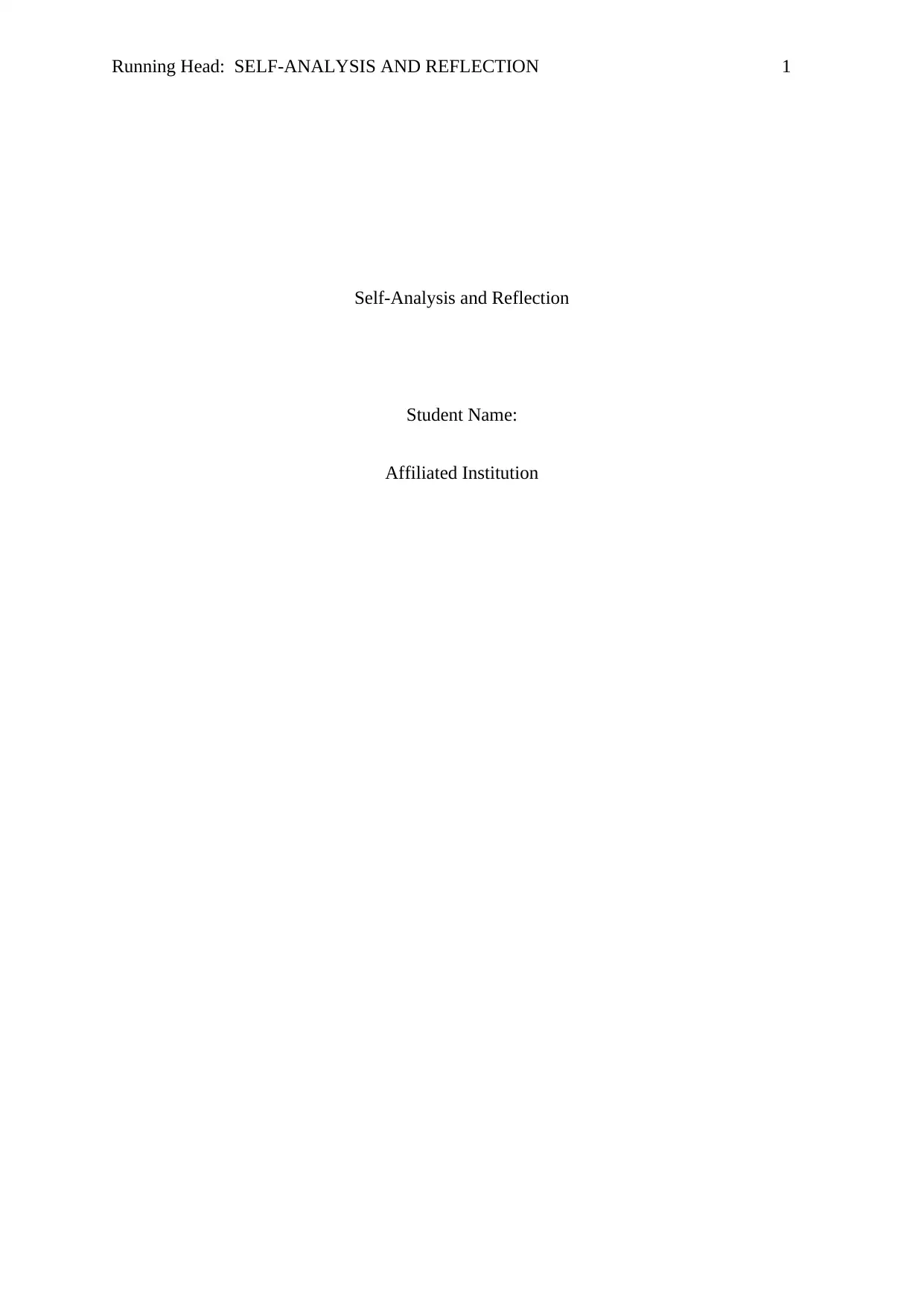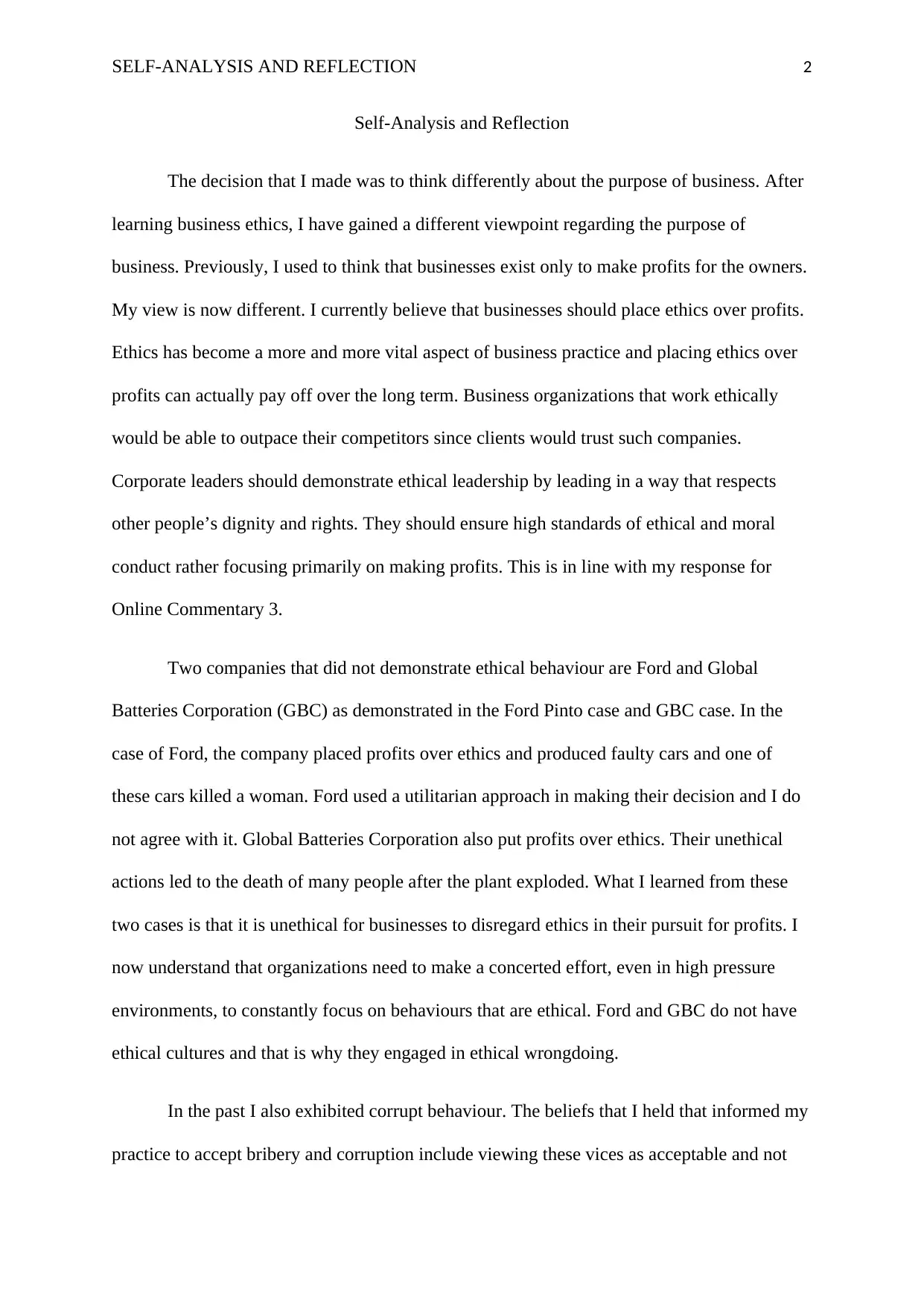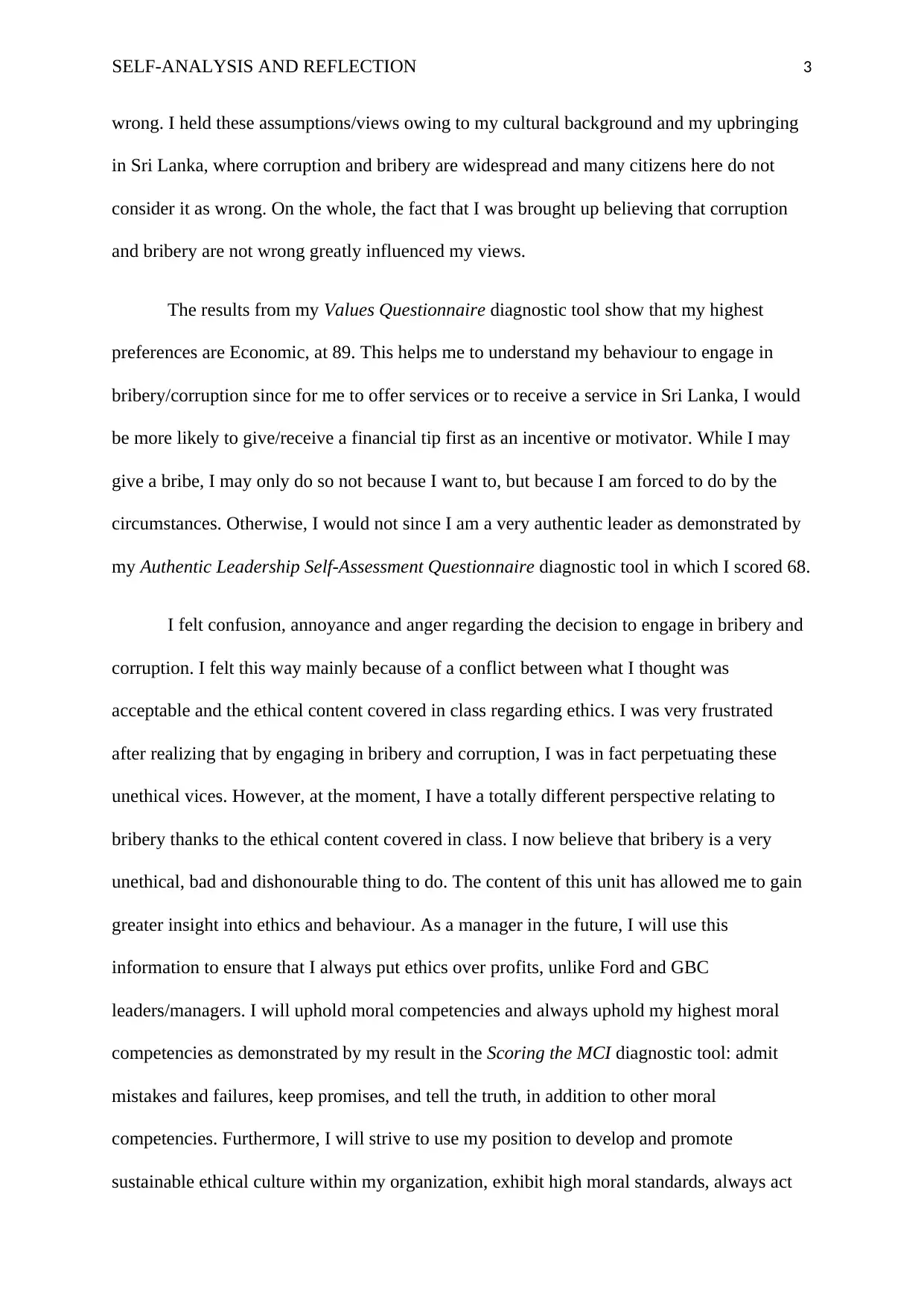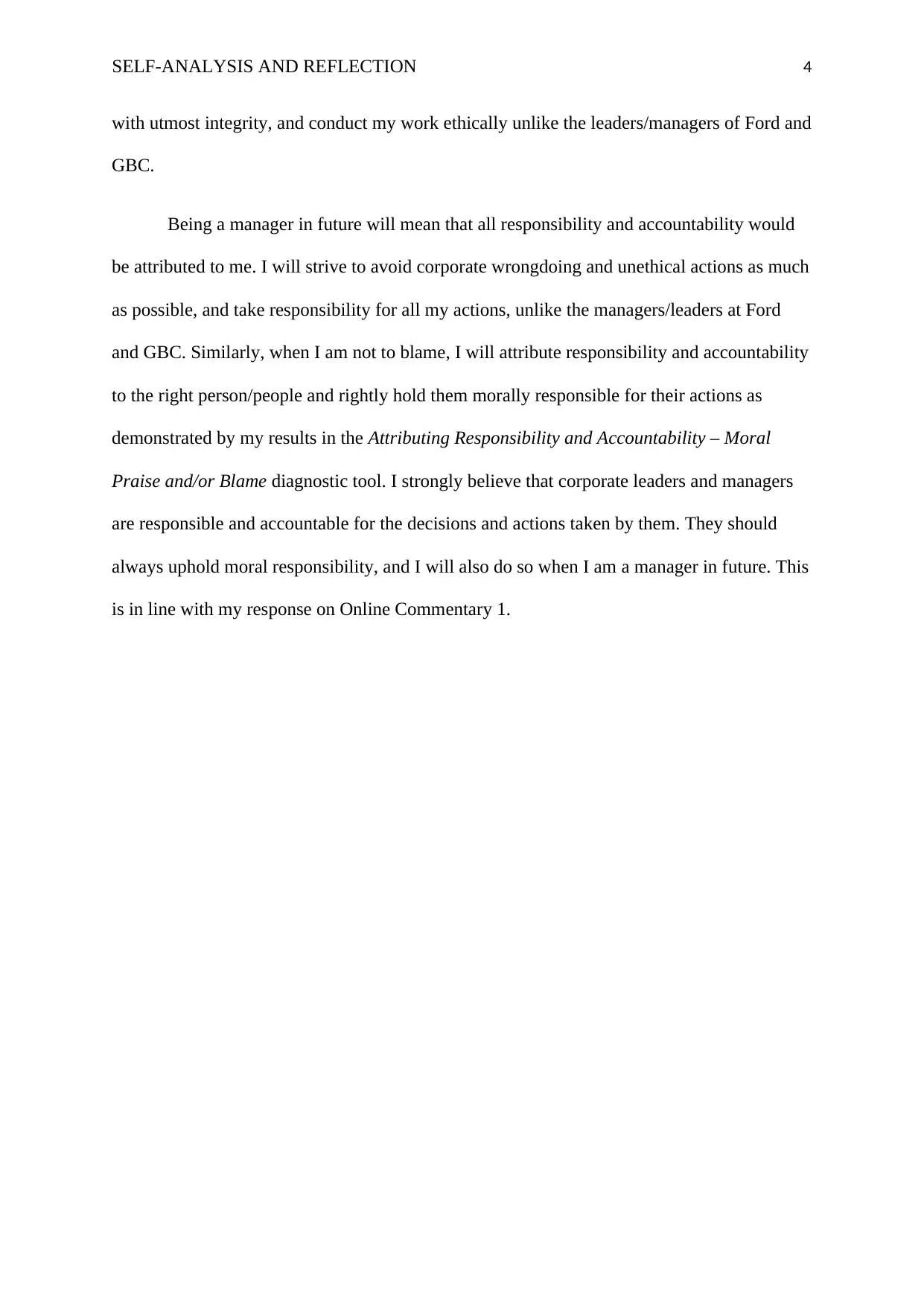Self-Analysis and Reflection on Business Ethics Module
VerifiedAdded on 2020/03/16
|4
|933
|181
Journal and Reflective Writing
AI Summary
This assignment presents a student's self-analysis and reflection on the principles of business ethics. The student reflects on a shift in perspective, now prioritizing ethics over profits, contrasting their previous view that businesses exist solely to generate profit. The analysis includes a discussion of ethical and unethical behaviors in business, referencing the Ford Pinto and Global Batteries Corporation cases to illustrate corporate wrongdoing. The student reflects on their personal experiences, including past acceptance of bribery due to cultural influences, and how their understanding of ethics has evolved. The assignment also touches on the student's leadership style and future goals as a manager, emphasizing a commitment to ethical leadership, moral responsibility, and developing a sustainable ethical culture within an organization. The student expresses a desire to avoid corporate wrongdoing and hold themselves and others accountable for their actions.
1 out of 4






![[object Object]](/_next/static/media/star-bottom.7253800d.svg)